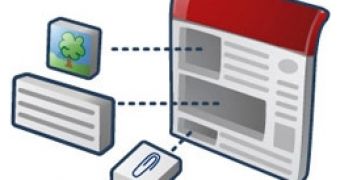Google has been moving into the lucrative business services market making some headway but nothing particularly spectacular. Its Google Apps suite has seen most of the spotlight but the company is also focusing on another offering, Google Sites, for which it just announced a new set of APIs to access the data and the service itself. The new API should provide some interesting possibilities for Sites users but also make it easier to migrate from other similar services.
“One of the benefits of Google Apps is the extensibility and openness of the platform. Today we're pleased to advance that story by introducing a new API for Google Sites in Labs,” Anil Sabharwal, from Google's Enterprise team, wrote. “While this API is brand new, application developers will find it rather familiar – it is, after all, a Google Data API. And like our 16 other Google Data APIs, this one comes with all the standard protocol support around authentication and querying that you'd expect.”
Google lists several examples where the new API could come in handy. The most obvious and probably the most useful is the possibility to access the data from third-party applications and push content to websites set up at Google Sites from apps like customer relations management (CRM) systems. Other uses could be to export the pages to edit them with other tools that may offer more advanced options than the ones available on Sites or simply to back them up.
A more interesting use, and a potential back door for Google, is the possibility to import files created with other applications like Microsoft's SharePoing or Lotus Notes, making it easier to migrate from one product to the other. This paves the way for users to move to Google and drop the competing products but, at the same time, it works both ways. The decision to open the Google Sites data is part of the larger Data Liberation Front movement, which aims to have every Google product and service use open standards and formats to facilitate the migration of data to and from other services.

 14 DAY TRIAL //
14 DAY TRIAL //